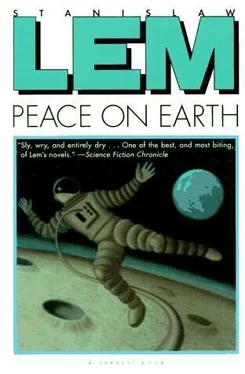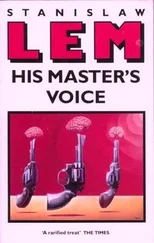Unable to obtain what he wanted, Turteltaub had to operate on monkeys, which were much more expensive than convicts, and as his grants were reduced, he feared he would end up with rats and guinea pigs, which wasn’t the same at all. Added to that, the Animal Protection League people and other antivivisectionists broke his windows regularly. They even burned his car. The insurance company wouldn’t pay, saying he had torched his own car in order to take the animal protectionists to court, besides the car was too old to be worth anything. Turteltaub was so boring that to shut him up I told him about the sign language my left hand had taught my right. A mistake. He called Globus immediately, or maybe it was Maxwell, to announce the presentation of a paper at the next neurologists’ conference, a discovery that would crush everyone. Seeing what was coming, I left Turteltaub’s without saying goodbye and went straight home. They were waiting for me in the lobby, their faces flushed and eyes burning with the unholy fire of science. I told them I would of course be glad to accompany them to the clinic, I just had to go up to my room to change first. While they waited for me in the lobby I climbed down the fire escape from the eleventh floor and grabbed a taxi to the airport. Since it didn’t matter to me where I went as long as it was far from those researchers, I took the first plane out, to San Diego, and at a seedy little hotel there full of shady characters, before even unpacking my bag, I telephoned Professor Tarantoga for help.
Tarantoga, thank God, was home. You learn who your real friends are when the chips are down. He flew in to San Diego that night, and when I told him everything as succinctly and precisely as I could the good soul agreed to take me under his wing. Following his advice, I changed my hotel and started growing a beard, meanwhile he looked for a doctor who valued the Hippocratic oath more than the fame achieved by a rare case. We quarreled on the third day because he brought me some good news and I thanked him only partly. He didn’t appreciate the sardonic winking from my left side. I explained of course that it wasn’t I but the right hemisphere of my brain which I couldn’t control. But this didn’t mollify him; he said that even if there were two of me in one body, the sneering faces that half of me was making clearly showed that I must have harbored some animosity toward him in the past, which manifested itself now as black ingratitude, while he was of the opinion that one was either a friend or one wasn’t. A fifty-percent friendship he had no use for. I finally managed to calm him down, and after he left I bought an eye patch.
The specialist he found for me was in Australia, so we flew to Melbourne. Joshua McIntyre, a professor of neurophysiology — his father and Tarantoga’s father had been best friends — inspired confidence immediately. He was tall, with a gray crew cut, calm, sober, and, as Tarantoga assured me, decent. He would not use me or notify the Americans, who were frantic to find me. After the examination, which lasted three hours, he put a decanter of whiskey on the desk and poured a glass for me and for himself. When the atmosphere warmed up, he crossed his legs, thought for a moment, cleared his throat, and said:
“Mr. Tichy, I will address you in the singular, which is more comfortable. There is no question that your corpus callosum has been severed from anterior to posterior commissure, though the skull shows no sign of trephination…”
“But I’ve told you, professor,” I interrupted him, “the skull wasn’t touched, it was a new weapon, a weapon of the future, designed not to kill but only to give the opposing army a total and remote cerebellotomy. Every soldier, his brain severed, would fall like a puppet whose strings are cut. That’s what I was told at the center whose name I cannot divulge. By accident I was standing sideways, or sagittally, as you doctors say, with respect to the ultrasound-inducing field. But this is only conjecture. Those robots work in secret, and the effects of the ultrasound aren’t clear…”
“Be that as it may,” said the professor, looking at me with kindly, wise eyes from behind his gold-framed glasses. “Nonmedical circumstances need not concern us right now. As for the number of minds in a callotomized individual, there are eighteen different theories, each supported by experimental evidence, therefore none of them wholly wrong and none of them wholly true. You are not one, nor are you two, nor can we speak of split personalities.”
“Then how many am I?” I asked, surprised.
“The question is poorly phrased. Imagine twins, who from birth do nothing but saw wood with a two-handled saw. They work well together, otherwise they would be unable to saw. Take the saw from them, and they become like you in your present state.”
“But each twin, whether he saws or not, has one and only one consciousness,” I said, disappointed. “Professor, your colleagues in America gave me plenty of such metaphors. Including the one about the twins and the saw.”
“Of course,” said McIntyre, winking at me with his left eye, and I wondered whether he too had something severed. “My American colleagues are as green as a field of corn and their metaphors are a dime a dozen. I mention the twins one on purpose; it comes from an American and is misleading. If we were to show the brain graphically, yours would resemble a large letter Y, because you still have a homogeneous brain stem and midbrain. It’s the downstroke of the upsilon, while the arms of the letter are the divided hemispheres. Do you understand? Intuitively one can see —” the professor broke off with a groan because I kicked him in the kneecap.
“Sorry, it wasn’t me, it was my left leg,” I said quickly. “I didn’t mean to…”
McIntyre gave an understanding smile, but there was something forced about it, like the grimace of a psychiatrist who pretends that the madman biting him is a fine fellow. He pulled his chair back a little.
“The right hemisphere does tend to be more aggressive than the left,” he said, rubbing his knee. “Would you mind keeping your legs crossed, and arms too? It will make our conversation easier…”
“I’ve tried, but they go limp. Anyway that upsilon business, excuse me, doesn’t explain anything. Where is the consciousness — under the division, on it, over it, where?”
“That cannot be precisely determined,” said the professor, still massaging his knee. “The brain, Mr. Tichy, is made up of a great number of functional subsystems, which in a normal person connect in various ways to perform various tasks. In your case the highest systems have been permanently disconnected and thus cannot communicate with each other.”
“And about subsystems too I’ve heard a hundred times. I don’t want to be impolite, professor, or at least my left hemisphere, the one talking to you now, doesn’t, but I’m still in the dark. I walk normally, I eat, read, sleep, the only problem is I have to keep an eye on my left hand and leg because without warning they’ll misbehave. What I want to know is who is misbehaving. If it’s my brain, why am I unaware of it?”
“Because the hemisphere that’s doing it is mute, Mr. Tichy. The center of speech resides in the left —”
On the floor between us lay wires from the different instruments McIntyre had used to examine me. I had noticed my left foot playing with these wires. It looped one, thick and shiny black, around its ankle, but I didn’t think much about this until suddenly the foot jerked sharply backward and the wire turned out to be wound around the legs of the chair upon which the professor was sitting. The chair reared and the professor crashed to the linoleum. But he was an experienced doctor and disciplined scientist because he picked himself up from the floor and said in an even voice:
Читать дальше












